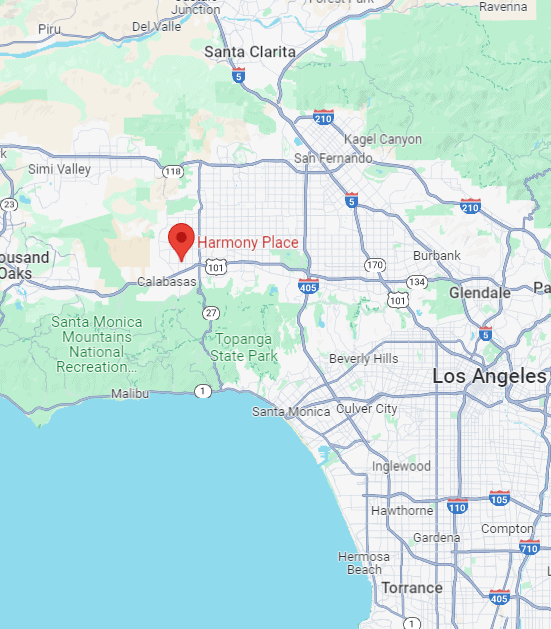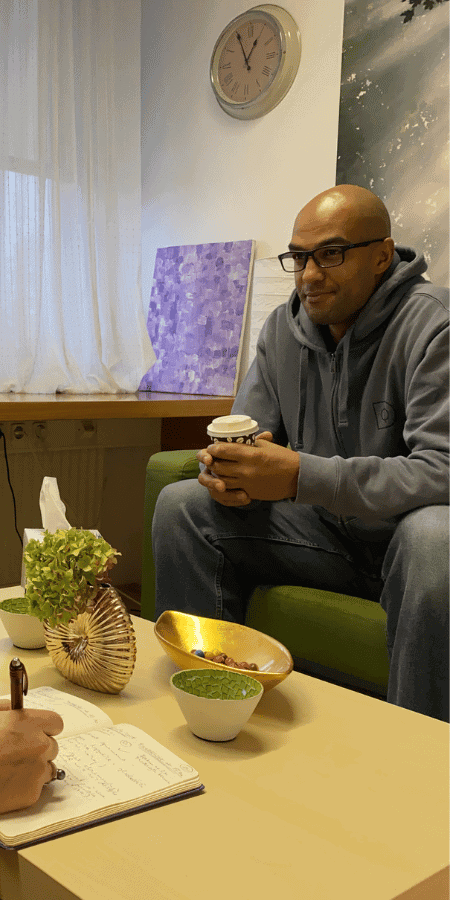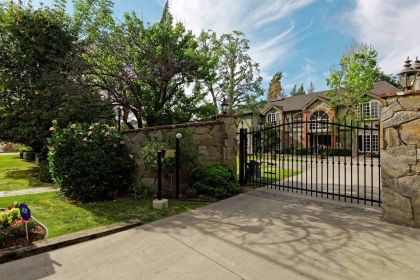How Much Does a Los Angeles Residential Inpatient Program Cost Without Insurance?
In Los Angeles, the cost of an inpatient rehab program without insurance can fluctuate based on several factors. On average, a session in an inpatient rehab program can range from $500 to $1000 per day. The total expenditure will also be influenced by the duration and frequency of the residential treatment and the treatment services provided.
For those in search of economical inpatient rehab treatment options, Harmony Place Treatment Center extends inpatient rehab programs without requiring insurance coverage. Emphasizing holistic treatment approaches, Harmony Place aims to ensure treatment accessibility for all, regardless of insurance status. Through their comprehensive Inpatient Programs, patients receive holistic treatment, including therapy, counseling, medication management, and other vital services, at competitive prices. Harmony Place offers sliding scale fees and payment plans to enhance the financial accessibility of inpatient care and reduce the cost of addiction inpatient programs.
Opting for Harmony Place Treatment Center for residential inpatient care enables patients to confidently start their recovery journey, knowing they receive top-notch treatment at a value-oriented, reasonable cost. To explore our inpatient treatment options and understand the cost of our inpatient programs in Los Angeles, contact us online or call (855) 652-9048.
What Is a Residential Inpatient Program in Los Angeles, CA?
A residential inpatient program in Los Angeles, CA, is a structured treatment option designed to provide intensive treatment for those struggling with substance abuse, mental health disorders, or dual-diagnosis conditions. Unlike outpatient programs, residential inpatient programs require patients to reside full-time at the rehab facility for the length of their treatment, typically ranging from several weeks to several months.
Residential addiction programs offer a supportive and therapeutic community where patients can focus solely on their recovery journey without distractions or triggers from the outside world. Within a residential inpatient program or recovery residence, patients receive comprehensive care suited to their needs. This may include residential therapy, education, medication management, life skills training, recreational activities, and holistic therapies in a live-in treatment setting. The goal is to address not only the symptoms of addiction or mental illness but also the underlying issues contributing to these conditions.
By providing 24/7 care in a structured and supportive residential recovery environment, inpatient programs aim to help patients develop coping strategies, build essential coping skills, and lay the foundation for long-term recovery and wellness.
What Are the Expected Out-of-Pocket Costs for Residential Inpatient Programs in California?
Expected out-of-pocket costs for residential inpatient programs in California can vary depending on different factors, including the specific treatment facility, the program duration, and the level of care required. On average, individuals can anticipate costs ranging from $500 to $1000 per day for residential inpatient treatment.
However, these figures are estimates, and actual expenses may differ based on the facility’s amenities, services, and location. Furthermore, individuals should consider additional expenses such as medication, therapy sessions, and other ancillary services that the base cost of the residential inpatient program may not cover. Some facilities may offer financial assistance options, sliding scale fees, or payment plans to help alleviate the financial burden for those without insurance coverage. It’s essential for individuals to thoroughly research and inquire about the cost of residential inpatient programs, as well as available financial assistance options, to make informed decisions about their treatment journey.
Harmony Place Treatment Center offers a holistic residential treatment program to those struggling with addiction and their mental health. To learn more about inpatient program treatment costs at Harmony Place, contact us online or call (855) 652-9048.

Residential Inpatient Addiction Treatment Facilities in California That Offer Payment Plans
Among inpatient addiction treatment facilities in California, Harmony Place Treatment Center distinguishes itself by offering flexible payment plans to accommodate those seeking treatment for substance abuse or mental health issues. Their dedication to providing affordable inpatient addiction treatment costs ensures that financial constraints do not hinder individuals from accessing the necessary care for recovery.
Recognizing the significance of affordability for those without insurance or facing financial hardships, Harmony Place customizes payment plans to suit each person’s circumstances. By prioritizing the affordability of addiction treatment without compromising the quality of inpatient care, Harmony Place Rehab Center endeavors to ensure treatment accessibility for all. For those interested in exploring wallet-friendly payment plan options or discovering more about the inpatient addiction treatment programs available at Harmony Place Rehab Center.
The staff at Harmony Place are readily available to offer information, address inquiries, and assist individuals in finding the ideal treatment plan that aligns with their needs and financial considerations.
Harmony Place – Woodland Hills, CA
23041 Hatteras St.
Woodland Hills, CA 91367
Common Types of Residential Inpatient Programs in Southern California
Residential inpatient programs in Southern California offer a holistic approach to treating substance misuse and mental health disorders. These programs provide intensive treatment and support in a structured environment, allowing people to focus on their recovery journey. In Southern California, particularly in Los Angeles, several common types of residential inpatient programs cater to specific needs and conditions.
Los Angeles Alcohol Use Disorder (AUD) Residential Inpatient Program
Alcohol use disorder (AUD) residential inpatient programs in Los Angeles provide specialized treatment for individuals struggling with alcohol addiction. These programs typically offer medical detox, therapy sessions, counseling, and support groups to help people overcome their dependence on alcohol and achieve lasting sobriety.
The residential setting allows for round-the-clock supervision and support, ensuring a safe and supportive environment for recovery. The estimated average cost of behavioral health inpatient programs for Los Angeles AUD inpatient programs can range from $500 to $1000 per day, depending on the duration and level of care provided.
Los Angeles Substance Use Disorder (SUD) Residential Inpatient Program
Substance use disorder (SUD) residential inpatient programs in Los Angeles are designed to address a wide range of substance abuse issues, including addiction to drugs such as opioids, cocaine, methamphetamine, and prescription medications. Inpatient programs offer a comprehensive approach to addiction treatment, incorporating medical detox, behavioral therapy, counseling, and holistic interventions to treat both the physical and psychological aspects of addiction.
The cost of inpatient program drug addiction treatment in Los Angeles varies depending on the length of rehab stay and the specific treatment services offered. However, residential inpatient programs for substance use disorder typically cost between $500 to $1000 per day.
Los Angeles Dual Diagnosis Residential Inpatient Program
Dual diagnosis residential inpatient programs in Los Angeles cater to individuals who struggle with both substance addiction and mental health, such as depression, anxiety, bipolar disorder, or PTSD. These residential dual-diagnosis treatment programs provide treatment that addresses both conditions simultaneously, helping individuals achieve recovery from substance abuse while also managing their mental health symptoms effectively.
The cost of Los Angeles dual diagnosis residential mental health programs is similar to other residential programs and can cost between $500 to $1000 per day, depending on the duration and level of care provided.

How Much Do Southern Californian Residential Inpatient Programs Cost With Insurance?
The cost of Southern Californian residential inpatient programs with insurance coverage can vary considerably, ranging from several hundred to several thousand dollars per day. This variation is influenced by factors such as the specific treatment facility, the type of insurance plan, and the extent of coverage the insurance company provides.
So, how much does inpatient rehab cost with insurance? Generally, individuals with insurance can expect their out-of-pocket costs to be significantly lower than those without insurance. Many insurance plans offer coverage for residential inpatient treatment as part of behavioral health benefits, but the extent of coverage may vary. Individuals are encouraged to contact us at Harmony Place Addiction Recovery or call (855) 652-9048 to obtain accurate information about the cost of residential inpatient programs with insurance.
What Impacts the Cost for Los Angeles Residential Inpatient Programs?
The cost for residential inpatient programs in Los Angeles can be influenced by various factors that contribute to the overall pricing structure. Understanding these cost factors can help make informed decisions about their treatment options.
So, how much does inpatient rehab cost? Here are some key elements that impact the cost of residential inpatient programs in Los Angeles:
- Severity and type of addiction: The severity and type of addiction play a significant role in determining the cost of residential inpatient programs. More complex and severe cases may require additional resources and specialized treatment approaches, leading to higher costs.
- Program duration: The length of the residential inpatient program can affect the overall cost. Longer programs typically incur higher expenses due to extended stay and increased services provided over time.
- Intensity of treatment: The intensity of treatment, including the frequency and duration of therapy sessions, medical interventions, and other therapeutic activities, can impact the program’s cost.
- Medical services and staff expertise: Programs that offer a higher level of medical services and expertise, such as access to specialized physicians, psychiatrists, and therapists, may have higher costs associated with their services.
- Facility amenities and accommodations: The quality of amenities and accommodations provided by the residential facility, such as private rooms, recreational facilities, and gourmet meals, can influence the program’s cost.
- Location: The location of the residential inpatient program can also affect its cost. Programs located in urban areas or areas with a higher cost of living may have higher prices than those in less expensive areas.
- Insurance coverage:The extent of coverage and the type of insurance plan can impact the out-of-pocket expenses for individuals seeking residential inpatient treatment. Individuals with comprehensive insurance plans may have lower costs than those with limited or no insurance coverage.
It’s essential to consider these factors carefully and discuss them with the treatment facility to determine the most suitable and economical option for their needs. Harmony Place Treatment Center provides comprehensive residential treatment programs with competitive costs. For further information regarding our inpatient treatment pricing options, please get in touch with us through our online contact form or by calling (855) 652-9048.

How to Pay for Residential Inpatient Treatment Programs
Paying for residential inpatient treatment programs can be a significant concern for individuals seeking help for addiction or mental health issues. Fortunately, various options are available to help cover the costs of treatment. Here are some common ways to pay for residential inpatient treatment programs:
- Health Insurance: Many health insurance companies provide coverage for residential inpatient treatment for addiction and mental health disorders. Individuals should check their insurance policy to determine the level of benefits and coverage and any out-of-pocket expenses they may incur.
- Out-of-Pocket Payment: Some individuals may choose to pay for residential inpatient treatment programs out of pocket if they do not have insurance coverage or if their insurance does not cover the full cost of treatment.
- Sliding Scale Fees: Some treatment facilities offer sliding scale fees based on income. This allows individuals to access treatment at a reduced cost based on their financial circumstances.
- Payment Plans: Many residential inpatient treatment programs offer payment plans that allow individuals to spread out the cost of treatment over time, making it more manageable to afford.
- Employee Assistance Programs (EAP): Some employers offer Employee Assistance Programs (EAP) that provide support and resources for employees who struggle with addiction or mental health. These programs may offer financial assistance or referrals to treatment facilities.
- Government Assistance Programs: Medicaid and other state-funded treatment programs may provide coverage for residential inpatient treatment for individuals who meet certain eligibility criteria.
- Family Support: Family members may be willing to provide financial support to help cover the cost of residential inpatient treatment for their loved one. Open communication and support from family members can be invaluable during the treatment process.
- Scholarships or Grants: Some treatment facilities offer grants or scholarships to those who demonstrate financial need or meet specific eligibility criteria. These funds can help offset the cost of treatment for those who may not otherwise be able to afford it.
It’s essential for individuals to explore all available options and discuss payment arrangements with the treatment facility to find the best solution for their needs. If you need more information on intensive residential therapy programs with competitive pricing and reasonable costs, contact us at Harmony Place Rehab Center for more information on a cost-efficient Inpatient Program without insurance or with insurance coverage.
Data from a March 2019 SAMHSA report offers a comprehensive view of the types of rehabilitation care received by individuals in California treatment facilities, along with corresponding numbers and percentages. The statistics depict the distribution and prevalence of treatment modalities across a spectrum of care options, ranging from outpatient services to hospital inpatient care.
According to the report, on March 29, 2019, a total of 96,960 clients were undergoing treatment across various facilities. The majority, constituting 60.4% (1,085 clients), received outpatient care. Within this category, 86.2% of all clients and 93.5% of clients under the age of 18 were served. Regular outpatient care was provided to 54.5% (979 clients) of all clients, while intensive outpatient care was received by 38.3% (688 clients). Additionally, day treatment or partial hospitalization was utilized by 18.0% (324 clients), and detoxification was undergone by 13.1% (236 clients).
Residential (non-hospital) care was availed by 45.8% (823 clients), with short-term residential care (≤ 30 days) received by 35.8% (644 clients), and long-term residential care (> 30 days) undertaken by 39.2% (704 clients). Hospital inpatient care was utilized by 3.9% (70 clients), while treatment in California hospitals was received by 2.7% (49 clients), and detoxification in California hospitals was undergone by 3.6% (64 clients).
These findings offer insights into the utilization patterns of outpatient and inpatient care among Californians seeking assistance for substance use disorders and mental health conditions. For more information on affordable residential inpatient programs provided at Harmony Place Treatment Center, you can contact us online or call (855) 652-9048. Whether you have insurance coverage or not, Harmony Place is committed to offering you cost-effective inpatient program options.
Residential and inpatient rehab statistics in California (CA) offer insights into the prevalence and impact of substance abuse and mental health conditions in California. According to recent data, the state ranks among the highest in the nation for substance abuse treatment admissions, with a significant portion of these admissions opting for residential or inpatient rehab programs.
Additionally, statistics highlight the effectiveness of residential and inpatient rehab programs in California, with many individuals achieving long-term recovery and improved quality of life after completing treatment. Data on retention rates, relapse prevention strategies, and post-treatment outcomes provide valuable information for individuals seeking treatment options and policymakers aiming to address the ongoing challenges associated with substance abuse and mental health disorders in California.
- Aetna Addiction Treatment Coverage
- Amerihealth Addiction Treatment Coverage
- Anthem (Elevance Health) Addiction Treatment Coverage
- Beacon Addiction Treatment Coverage
- Blue Cross Blue Shield Addiction Treatment Coverage
- Carelon Addiction Treatment Coverage
- Cigna Addiction Treatment Coverage
- Compsych Addiction Treatment Coverage
- First Health Addiction Treatment Coverage
- Humana Addiction Treatment Coverage
- Kaiser Permanente Addiction Treatment Coverage
- Magellan Health Addiction Treatment Coverage
- Medical Mutual Addiction Treatment Coverage
- Molina Health Addiction Treatment Coverage
- Multiplan Addiction Treatment Coverage
- Optum Addiction Treatment Coverage
- TRICare Addiction Treatment Coverage
- United Healthcare Addiction Treatment Coverage
- Cost of Treatment
- Cost of Dual Diagnosis Treatment
- Cost of Addiction Treatment
- Cost of Drug and Alcohol Detox Programs
- Cost of Drug and Alcohol Residential Inpatient Programs
- Cost of Drug and Alcohol Partial Hospitalization Programs
- Cost of Drug and Alcohol Intensive Outpatient Programs
- Cost of Drug and Alcohol Outpatient Programs
- Cost of Drug and Alcohol Aftercare Programs
- Cost of Sober Living
- Cost of Addiction Therapy Programs












